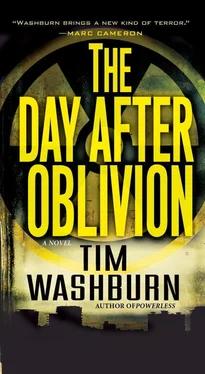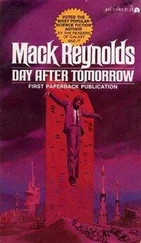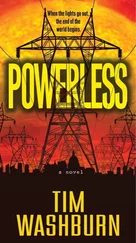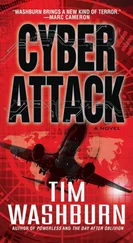Brad’s brother, Bobby, and his family, lived in the Raleigh-Durham area before moving to Seattle and Brad has spent a fair amount of time in the state. He knows about the large military installations. North Carolina is home to Fort Bragg, the largest military base in the world, and is also the home to the U.S. Special Forces. No doubt that had been target 1-A for the Russian ICBMs. Add in the Marine Corps Base Camp Lejeune, and there’s a high probability that most of North Carolina is nothing but smoldering ruins. Brad runs the numbers in his head. The state is, or was, home to over nine million people. The number of initial deaths must have been staggering, probably well in excess of six million people, Brad guesses by looking at the devastation. And that’s probably on the low end of the spectrum. Brad lowers the binoculars and shakes his head. If that’s the death toll for one state, what’ll it be for the rest of the country?
As if reading his father’s thoughts, Tanner asks, “Dad, how many people do you think are left?”
Brad sags onto the bench seat. “Who knows? Maybe ten to twenty percent.”
“Of what?”
“Of the U.S. population.”
“Which is?”
“North of three hundred eighteen million people.”
Tanner takes a moment to do the math, the blood draining from his face. “That can’t be right, Dad. That would mean over two hundred seventy million people were killed?”
“We may never know the exact numbers, but that’s probably in the ballpark. And that’s just the United States. Globally, the number will be much higher. And, this is important to remember, Tanner, the death toll will continue to climb as famine sweeps across the globe.”
Tanner is silent for a moment, trying to absorb the enormity of the situation. “Why? Why a nuclear war?”
Damn it. First questions about his mother and sister and now this? Is Tanner focusing too much on death? Are we all thinking too much about the past instead of preparing for a harsh future? “I don’t know what the instigating event was, but things obviously spiraled quickly out of control. There is no rational answer for what happened, Tanner. And trying to find one is a waste of energy. All we can do is survive.”
“What happens when we run out of food?”
Brad sighs. “I don’t have all of the answers, Tanner. Hell, I don’t even know all of the questions.” Brad stands and steps over to his fishing pole. “What I do know is we have an ocean full of fish. Going hungry should be the least of our worries.” Don’t ask. Please don’t ask, Brad’s brain is screaming.
“We haven’t caught a fish yet.”
Brad slowly releases his held breath, happy that Tanner didn’t ask about the freshwater situation. “Fishing is all about luck and timing. Do you want to give it a try?”
“I suck at fishing.”
“You can’t suck any more than I do. Hopefully, now that we’re past the worst of the debris, the fish will begin to bite. Hey, how many times did we watch those TV shows where the crews go days without catching one of those monster tuna?”
“Those were shows you watched, Dad.”
“Okay, but those guys fish for a living. Everyone hits a rough patch every now and then.”
Tanner shrugs. “I don’t really like fish all that much, anyway.”
“You just haven’t had it cooked the proper way.”
“That’s what Mom used to say.”
A sudden silence descends at the mention of Emma Dixon. Brad rushes to fill the gap. “You just wait until you taste my fish. You’re going to love it.”
“You have to catch one first, Dad.”
North Atlantic
The USS New York is momentarily stationary at a depth of 380 feet. The control room is quiet, as is the rest of the submarine. The captain ordered all current maintenance work stopped immediately and the crew remains at battle stations. The last thing they need is a mechanic dropping a wrench against the hull. Underwater, even the smallest sound can travel for miles. And with a Russian warship in the vicinity, the wrench hitting the deck could be a fatal mistake.
Captain Thompson steps over to the sonar station. “Status, Mr. Adams,” he asks.
“Ten miles and closing, sir. She’s turning thirty knots.”
“Bearing?”
“Coming in on our starboard, Skipper. If she holds true to course, she’ll pass two miles off our bow.”
Thompson turns to Garcia, who is following the Russian ship on the computer. “Think she’s hunting or just traversing the seas?”
“They haven’t pinged their active sonar. Yet. And we haven’t been topside since Ponta Delgada. I don’t think there’s any way they know we’re here.”
“Unless they switch to active sonar.” Thompson turns in Adams’s direction. “Any way to tell if they’re towing a sonar array?”
“I can detect it, Skipper, but I’m not seeing one at present.”
“Conn, ahead one-third, hard left rudder.”
“Putting some distance between us?” Garcia asks.
“Yes.” Thompson walks over to the chart table and pulls up the electronic chart for their current area. Garcia stands and follows. Thompson uses his index finger as a pointer. “We’re just west of the Mid-Atlantic Ridge. If we can run for a couple of miles, we can nestle down into the rift valley. Even if they go to active sonar, they’d have a very difficult job of detecting us.” Thompson glances up at his XO. “The next question is, do we want to let her pass and come up behind her and fire the torpedoes?”
Garcia rubs the stubble on his chin. “I don’t know, Bull. Might be best to let sleeping dogs lie. We don’t have a clue if there are other ships in the vicinity. If it’s a Russian destroyer, nine times out of ten, she’s traveling with a battle group.”
“That scenario was true before this clusterfuck began. Battle groups may no longer exist. I want to agree with you, Carlos, but I don’t want to be looking over my shoulder for however long we’re under way. If we take her out now, that’s one last thing to worry about.”
“And we could be stirring up a hornet’s nest. Let’s wait to see how the ship reacts as it gets closer. If she starts acting erratic with course and speed changes then we’ll know she’s on the hunt. If not, I say let her go.”
Thompson allows Garcia’s comments to ping around his brain for a few moments. “Okay, we’ll play it your way for now.” Thompson pivots. “Mr. Patterson, I want to park the boat in the rift valley running along the Mid-Atlantic Ridge. And I want it done quickly.”
“Aye, aye, Skipper,” the navigator, Mike Patterson, says.
The boat begins to descend as Patterson inserts the new course into the computer.
“Sonar, distance?”
“Seven miles and closing at thirty knots.”
“Roger,” Thompson says. “She’s running awfully fast, Carlos. It’s almost like she’s in a hurry—”
“Another contact, Skipper,” Adams says.
Garcia and Thompson share a surprised look.
“Bearing two-nine-two degrees, thirty-one miles and closing at thirty-five knots, sir.”
“Another Russian ship?”
The sonar tech turns and smiles. “Negative, sir. One of ours.”
Sailors on the bridge exchange silent high fives.
“I’ll be damned,” Thompson says. “Carlos, she’s not hunting, she’s running. Mr. Adams, what type of ship?”
“An Arleigh Burke–class destroyer, sir.”
“Son, how certain are you the second contact is a U.S. Navy ship?” Thompson asks.
“One hundred percent, Skipper. If you give me a few minutes I’ll probably be able to tell you exactly which one.”
Читать дальше












